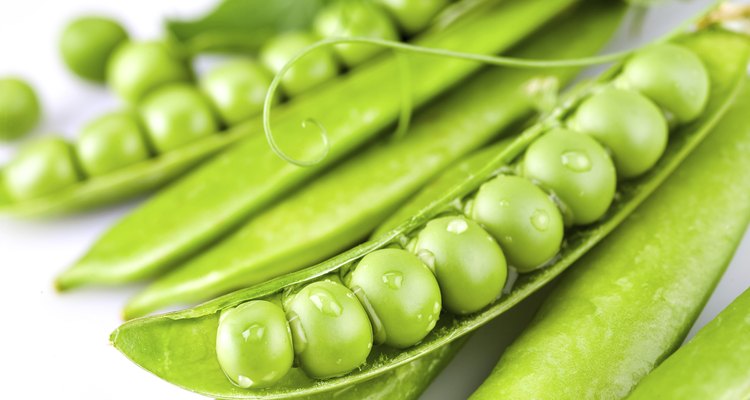
anna1311/iStock/Getty Images
Freezing is an easy way to preserve raw or prepared foods for later use. The best containers for freezing foods are airtight, leak-proof, grease-resistant and won't crack in the cold. They also won't absorb odors or colors from the food or give the frozen food an artificial taste. Rigid plastic containers and flexible zipper bags are the most common types of containers for freezing, but special freezer wrap or even canning jars can also maintain your frozen food's flavor and nutritional content.
Rigid Containers
These airtight containers, perfect for storing liquids, are made of glass or durable plastic and come with a snap-on lid. They can be reused many times if they are thoroughly washed with warm water and dish soap between uses. However, the lids can also stretch under temperature changes, allowing air and moisture to enter the container. If that happens, they should be discarded, or used in conjunction with plastic zipper bags. High-quality containers will resist stains from tomato sauce or curry powder.
Flexible Plastic Zipper Bags
Frozen food remains fresh when stored in flexible, plastic bags that seal with a zipper mechanism at the top. All excess air should be squeezed out of the bag prior to sealing it to prevent freezer burn on the food. Bags easily accommodate irregularly shaped foods, and when storing liquids, they can be placed inside a rigid plastic container for convenient stacking inside the freezer.
Freezer Wrap
Moisture-resistant wrappers--such as plastic wrap designed for freezing, waxed freezer paper and heavy-duty aluminum foil--are suitable for freezing food with low moisture content. Avoid using freezer wrap for foods that could leak or that have a semi-liquid consistency. Two layers of wrap--such as an initial layer of plastic to keep in freshness, followed with an outer wrap of aluminum foil to prevent freezer burn--are ideal.
Canning Jars
Jars used for canning and vacuum-packing foods can also store food in the freezer with a minimum of fuss. Wide-mouth jars allow the food to expand while freezing and make it easy to extract food after it's thawed. The glass is tempered to withstand extremes in heat and cold, so it won't crack in the freezer. Do not use regular glass jars, as the glass could crack or break under pressure. When you fill glass jars, leave some space at the top to allow the food to expand as it freezes.
Related Articles
How Long Can Food Stored in Canning ...

Can You Freeze Canned Goods?
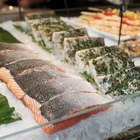
FDA Food Storage Temperature Guidelines
Freezing a Dish With Sour Cream in It
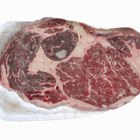
If Meat Is Frozen, How Long Does It ...
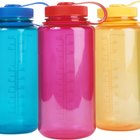
Heating Foods in Plastic & BPA

How to Vacuum Seal Jars
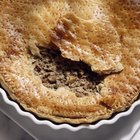
Glass Pie Pan Baking Tips

The Steps in Cooking Raw Foods in a ...
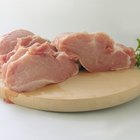
How Long Is Pork Good for While Frozen?
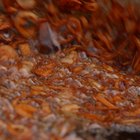
Guidelines For Refreezing

The Safety of Refrigerators and ...
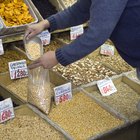
What Are the Dangers of Plastic Bags ...
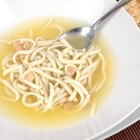
Does Canned Soup Go Bad?

How to Freeze Croissants

How Long to Cool a Quiche
How Long After the Expiration Date Can ...
Longest Lasting Supermarket Foods for ...

Does Caviar Go Bad?

How to Store Smoothies in the Fridge
References
Photo Credits
anna1311/iStock/Getty Images